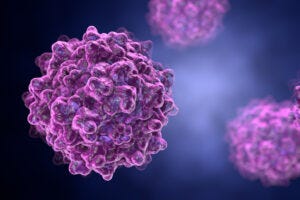Content Spotlight
Podcast: MilliporeSigma says education vital to creating unbreakable chain for sustainability
MilliporeSigma discusses the importance of people, education, and the benefits of embracing discomfort to bolster sustainability efforts.

Adeno-associated virus (AAV) vectors are a widely-used, versatile, and appealing gene therapy delivery platform because of their high safety profile and ability to target many different cell types and transport healthy gene copies into a patient’s cells.
September 15, 2022

Sponsored by Oxford Biomedica Solutions
Adeno-associated virus (AAV) vectors are a widely-used, versatile, and appealing gene therapy delivery platform because of their high safety profile and ability to target many different cell types and transport healthy gene copies into a patient’s cells.
The recent clinical successes of AAV-mediated gene therapies have ignited much interest in solutions for the scalable, good manufacturing practice (GMP) production of AAVs, and high demand for outsourced development and manufacturing capabilities.
Yet, significant challenges remain, particularly around product quality, productivity, and consistency. Achieving high quality is incredibly important as it directly affects patients’ health and safety. Productivity and consistency are also critical from a supplier and economics perspective.

Image: iStock/Dr_Microbe
Additionally, there’s a well-recognized shortage of skilled workers in the manufacturing space. This is creating a massive technical challenge with inadequate access to expertise, especially as the US Food and Drug Administration (FDA) and other regulatory agencies are raising the bar for analytical expectations. On-time delivery can also be a struggle for some manufacturers when the process is complex, when there is a quality issue, or a supply chain bottleneck.
Oxford Biomedica (OXB) Solutions has developed a novel, proprietary dual-plasmid system as a means of addressing some of the issues with the traditional transient transfection process used to produce AAVs.
This system has consistently demonstrated improved productivity above E15 vg/L, and product quality, greater than 90% fully intact, across multiple serotypes, and it can be leveraged to obtain significant process gains in the manufacturing pathways of advanced therapies while maintaining the flexibility of transient transfection.
The OXB Solutions team has also developed a proprietary ‘plug and play’ dual-plasmid system for transient transfection that meets regulatory and compliance expectations.
The system is capable of achieving remarkable titers and high-quality vectors necessary for effective AAV-based gene therapies. High titer, high product quality, proven scalability, and speed are the foundations of the system, resolving some of the key manufacturing challenges faced by AAV developers.
FInd out more from Oxford Biomedica here.
You May Also Like